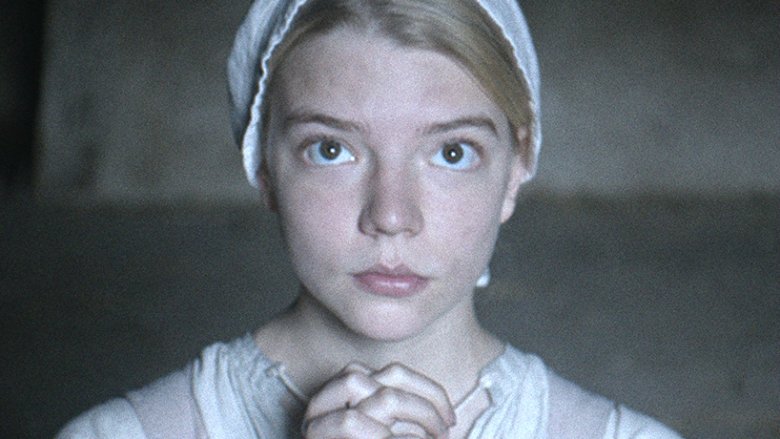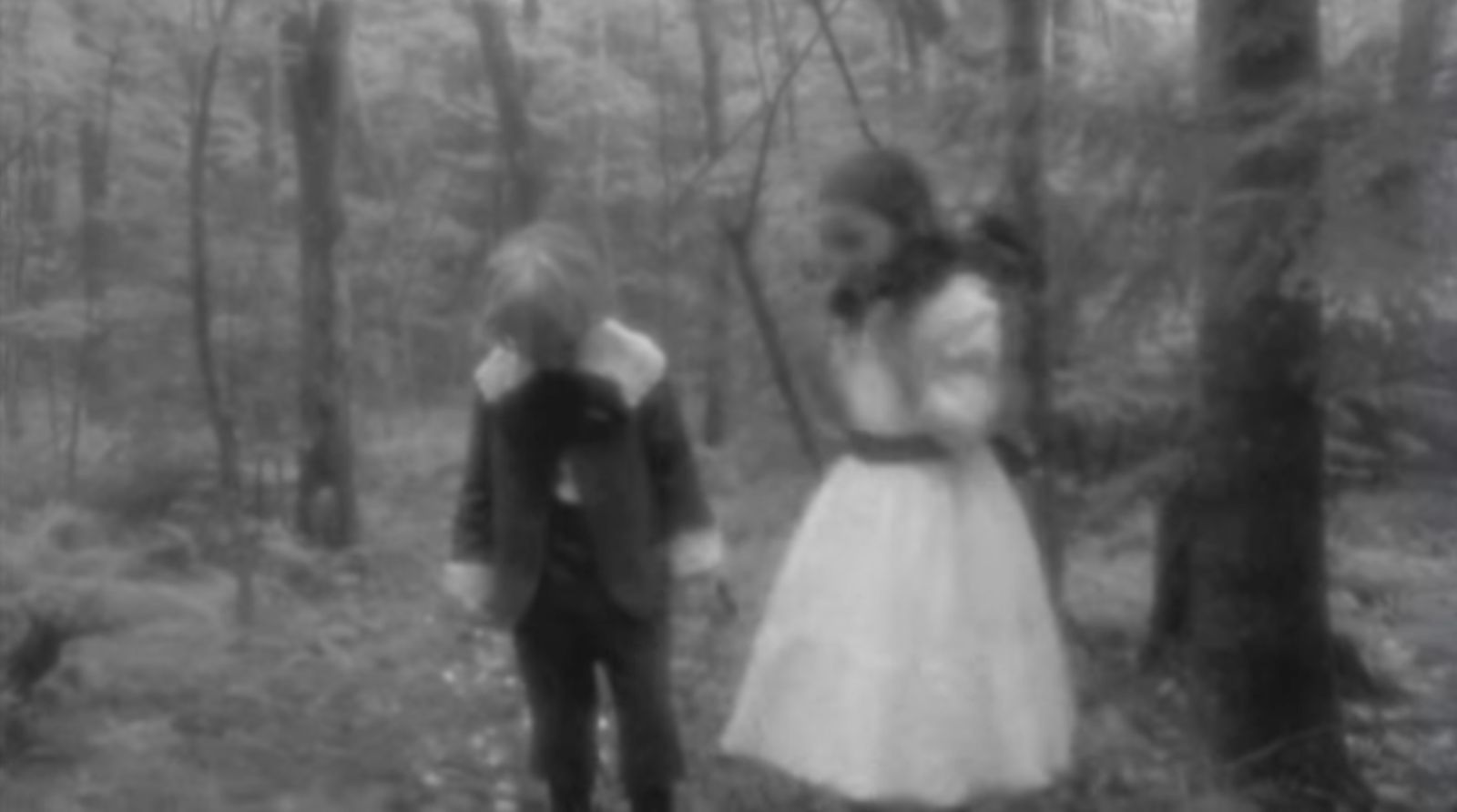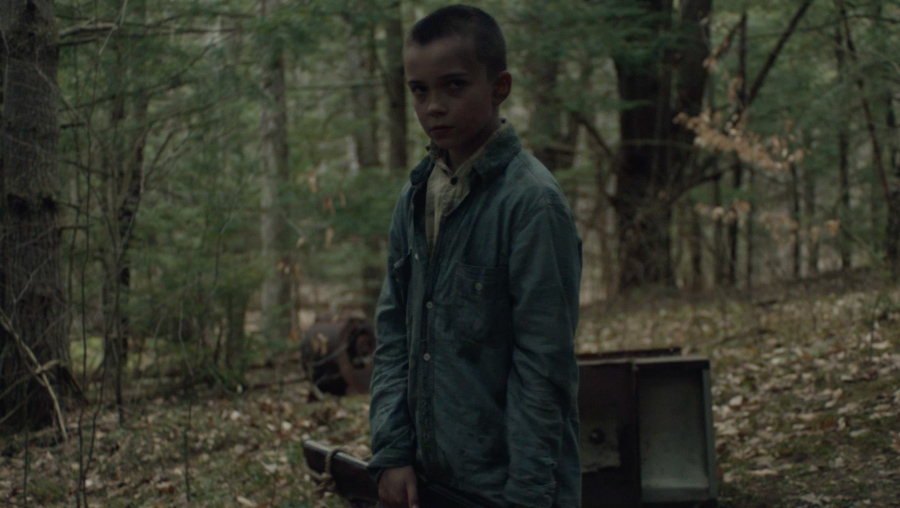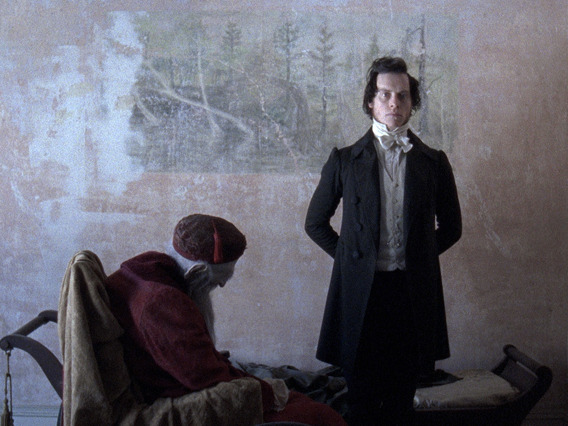
Despite having only three feature-length films under his belt, Robert Eggers has already solidified himself as one of the most exciting voices in American cinema. In the past decade, he’s created quite a following by distancing himself from the clutches of formulaic horror and providing a welcomed alternative in the form of enigmatic folkloric retellings steeped in myth, religion and the occult. His brand of filmmaking strives for historical accuracy and immersive atmosphere in order to win you over — a breath of fresh air especially in a watered-down genre where cheap jump scares and focus-tested sequels seem to be the order of the day.
In his 2015 debut, ‘The Witch’, the director thrust us into 1600’s New England to witness the downfall of a helpless Puritan family who see their faith tested while a force beyond their control lurks in the shadows. Eggers would prove that his first hit was anything but a fluke with ‘The Lighthouse’, a genre-blending tumble into the abyss that knocked everyone’s socks off in 2019. Nowadays, the hefty reputation that precedes his name is that of a genuine auteur in the true sense of the word — one of a dying breed of filmmakers who refuse to compromise their vision and who make a mandatory appointment at the big screen out of every new release.
In ‘The Northman’, Eggers has turned the clock all the way back to the early 10th century, adapting an ancient Viking legend that pictures a wronged prince (Alexander Skarsgård) in his all-consuming quest to avenge the murder of his father (Ethan Hawke) at the hands of his bastard uncle (Claes Bang). Boasting a full deck of A-listers (Anya Taylor-Joy, Nicole Kidman, Willem Dafoe, Björk) and the closest thing to a blank check he’s ever been handed, the film has been greeted with much fanfare and lauded as Eggers’ most ambitious production yet, which means it has all the makings of an instant classic. And though his Icelandic saga marks his first step outside the genre that bestowed him with universal acclaim, Eggers feels right at home recreating the beefcake historical thrillers of yesteryear.
As we celebrate his newest release and bide our time until his long-gestating ‘Nosferatu’ remake sees the light of day, we thought of taking a trip down memory lane to examine every film the director’s churned out so far — feature length or otherwise. That means we have included all of his shorts in addition to his landmark work. Without further ado, let’s find out how Eggers’ muddy revenge tale stacks up against the rest of his oeuvre.
6. Hansel & Gretel (2007)

Everyone has to start somewhere. In Robert Eggers’ case, his love for German expressionist cinema peaked early in high-school and led him to direct a Gothic stage interpretation of ‘Nosferatu’. Years later, after a brief stint at a New York acting school, he decided to pick up a camera and reimagine this classic Brothers Grimm’ fairy tale. This marked the first production to his name and left us with an intriguing 26-minute experimental short that shows all the early markings of his stylistic identity. The story doesn’t necessarily break any new ground; putting us in the shoes of the titular siblings as they venture into the forest and fall in the hands of a sinister witch who plots to fatten them before eventually eating them.
For many of us, this cautionary tale remains ingrained in our minds as our first real contact with scary themes like cannibalism and witchcraft. And though the choice of adapting this particular story proves his interests were fully formed right out of the gate, it’s the bold production design and anachronistic visual flair that makes it a fascinating microcosm of the Robert Eggers we all know and love. Shot in black-and-white, silent form full with intertitles, the film wears its inspiration on its sleeve, cribbing from F.W. Murnau and Fritz Lang among other German expressionist staples. One could even argue that the shoestring budget plays to the film’s benefit, heightening its spooky vibes and capturing the look and feel of 1920’s silent cinema with more conviction than any glossy Hollywood production could.
Although the short got into one festival, Eggers recently described it as “absolutely terrible”: “On the way home, I decided I had to do something better.” It’s clear the director hadn’t found his footing just yet, but pacing issues aside, ‘Hansel & Gretel’ is a solid steppingstone that paved the way for all his subsequent projects.
5. Brothers (2013)

‘Brothers’ is an 11-minute short originally intended as a proof-of-concept shown to studio heads in order to secure investment for ‘The Witch’. First and foremost, the film serves as a nice showcase for Eggers’ to display his directing skills and artistic vision and convince producers to green-light what’d eventually become his feature-length debut. The fact that it exists at all is telling proof of ‘Brothers’ success.
Unsurprisingly, the director once again tapped into religion and myth in this short, basing the story on the biblical feud between Cain and Abel, which allowed him to probe into the nature of familial discord, a theme burrowed deep into his work that would be further explored in ‘The Witch’ and ‘The Northman’. Despite its limited runtime, the film packs a punch and manages to highlight Eggers’ knack for the macabre, deftly sustaining tension and instilling dread while creating a palpable eerie atmosphere all throughout. Though unabashedly still a formative work, ‘Brothers’ runs rings around the amateurish ‘Hansel & Gretel’ as a much more refined effort that gave us a glimpse at what Eggers was truly capable of.
4. The Tell-Tale Heart (2008)

Until recently, your only hope to watch this adaptation of Edgar Allan Poe’s short novel was to lay hands on one of its rare DVD copies, as it remained completely unavailable online for over a decade. Luckily, the film has once again resurfaced to everyone’s delight, thus making the present list possible.
‘The Tell-Tale Heart’ was shot in an abandoned 19th-century house near New Hampshire under arduous conditions during an eight-month production. And though translating Poe’s words onto the screen is no easy task, the film is almost dialogue-free and relies on visual storytelling and stark production design to put you under its spell. The film shows a servant repeating his duties while rigorously taking care of an old man at death’s door (brought to life by a puppet!). Time rots away and the banality of his daily routine becomes unbearable for the young butler, who in a fit of fury murders the master of the house in cold blood.
The lack of score, lengthy takes and glacial pace are all cut from the same cloth as Ingmar Bergman’s chamber dramas (think ‘Through a Glass Darkly’ meets ‘Autumn Sonata’), settling for a style halfway between the Swede’s minimalist austerity and Tim Burton’s Gothic tone. Most importantly, this marked the first of many collaborations between Eggers and frequent cinematographer Jarin Blaschke, which explains why the film improves by leaps and bounds compared to any of the director’s previous efforts from a visual standpoint.